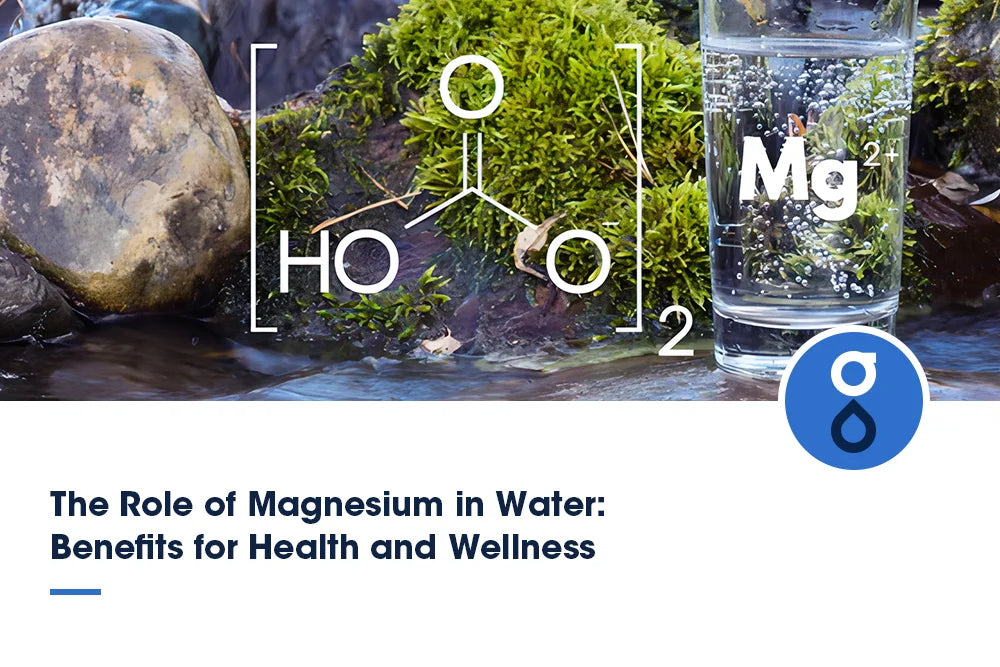Table of Contents:
The importance of water filtration in daily life
Exploring ancient practices for water purification
Modern applications of ancient water filtration techniques
Harnessing water wisdom for today`s needs
FAQs
Conclusion
While modern technology has provided us with advanced purification techniques, it's worth noting that our ancestors also had their methods of purifying water. These ancient purification techniques, honed through centuries of trial and error, can still offer valuable insights and solutions for managing today's water needs. This article will delve into the rich history of ancient purification techniques and explore how they can be adapted and incorporated into modern practices to ensure access to clean, safe, and sustainable water for all.
The importance of water filtration in daily life
A reliable water filtration system is essential for daily clean and safe drinking water. Household filtration systems offer a convenient way to ensure your water is free from harmful contaminants, thus providing numerous health benefits. Investing in a quality filtration system for your home can significantly reduce the risk of waterborne diseases and improve the quality of your drinking water.
Portable filtration systems are also a great option for those on the go. Not only do they provide access to clean water wherever you are, but they also positively impact the environment by reducing the need for single-use plastic water bottles. These systems use advanced technology to effectively purify water, making it safe for consumption even in remote locations.
Water filtration technology advancements have made monitoring and enhancing water quality easier than ever. By staying informed about the latest innovations in filtration systems, you can take proactive steps to safeguard your health and well-being through access to clean and safe drinking water.
Exploring ancient practices for water purification
Hydromancy: The ancient practice of divining water`s purity

Ancient civilizations practiced hydromancy, a method of divining water's purity to ensure safe consumption and use. Rooted in divination techniques, hydromancy involved rituals to determine water purity. Ancient hydromancers often relied on traditional purification methods, such as observing the water's clarity, taste, and smell to assess its quality. By interpreting ripples, bubbles, or the presence of sediment, they could discern if the water was suitable for drinking, bathing, or irrigation.
Through hydromancy, our ancestors safeguarded themselves from waterborne illnesses and ensured the well-being of their communities. The practice of hydromancy served as a means of survival and a spiritual connection to the life-giving properties of water.
Sun water: Harnessing the power of the sun for purification

Harnessing the power of the sun for purification, ancient civilizations developed the practice of Sun water as a method to cleanse and purify water for various uses. Through solar distillation, a technique dating back centuries, communities utilized the sun's heat to evaporate water, leaving impurities behind and collecting condensed, purified water. This method, known as sun purification, was a simple yet effective way to ensure access to clean drinking water in regions with scarce other resources.
Ancient techniques for sun water involved using specially designed vessels that could trap and concentrate the sun's rays to heat the water inside. As the water evaporated, the steam would rise, leaving contaminants behind, while the condensed vapor would collect in a separate container, providing a source of clean, purified water.
This process highlights the ingenuity of ancient civilizations in harnessing natural elements for essential needs, paving the way for modern advancements in water purification technologies. By understanding and adapting these historical practices, we can continue to explore sustainable and effective methods to meet our current water purification needs.
The role of chemical processes in ancient water purification
Chemical processes played a crucial role in ancient water purification methods, enhancing the effectiveness of water treatment techniques. In ancient times, people relied on chemical reactions and natural elements to purify water for consumption. These ancient methods, rooted in the principles of ancient chemistry, were instrumental in improving water quality and ensuring the safety of drinking water.
The historical significance of these purification techniques lies in their ability to remove impurities and harmful contaminants from water sources. Ancient civilizations treated water and made it potable by using specific chemical reactions, such as precipitation and oxidation. These traditional practices underscore our ancestors' ingenuity and highlight the importance of water treatment in maintaining public health.
Modern applications of ancient water filtration techniques

Implementing cutting-edge technology, today's scientists are incorporating age-old water filtration methods to purify water effectively and sustainably. By merging traditional methods with modern technology, sustainable solutions are being developed to address the growing need for clean water while minimizing the impact on natural resources.
These innovative approaches provide safe drinking water, respect cultural practices, and reduce the environmental footprint of water treatment processes. One example of this is the use of bio-sand filters inspired by ancient filtration techniques. These filters contain layers of sand and gravel that naturally trap impurities, providing a cost-effective and environmentally friendly way to purify water.
Additionally, integrating indigenous knowledge of plant-based filtration systems into modern engineering has led to the development of biofiltration technology that effectively removes contaminants from water.
Harnessing water wisdom for today`s needs

By adapting ancient water purification techniques, you can effectively and innovatively meet today's water needs. In the face of water scarcity, traditional methods like sand filtration, charcoal purification, and clay pot filtration offer sustainable water solutions rooted in cultural practices. These techniques passed down through generations, provide cost-effective and eco-friendly ways to purify water without relying on modern technology.
By incorporating these traditional purification methods, community water projects can greatly benefit from indigenous knowledge. By blending modern science with ancient wisdom, communities can create comprehensive water purification systems that are both effective and culturally significant.
Implementing such practices meets water needs and fosters a connection to heritage and sustainable living. Embracing these traditional purification techniques in community projects ensures clean water access and promotes the preservation of indigenous knowledge. By harnessing water wisdom from the past, we pave the way for a more sustainable and culturally enriched future.
FAQs
Can ancient water purification techniques be used for large-scale systems?
Historical effectiveness and scalability are key when considering ancient water purification techniques for large-scale systems. Combining sustainable practices with innovation can enhance efficiency. Cost efficiency and cultural sensitivity should also be prioritized for successful implementation.
What are some potential drawbacks of relying on ancient water purification methods?
Relying on ancient purification methods may pose health risks due to limited effectiveness and contamination. Maintenance challenges, environmental impact, and time-consuming processes could also hinder efficiency. Consider modern alternatives to address these drawbacks effectively.
Conclusion
Incorporating ancient purification techniques into modern water systems is crucial for ensuring clean and safe drinking water for communities. By harnessing water wisdom, we can address today's water needs and preserve valuable indigenous knowledge for future generations. Embracing these traditional practices alongside modern science is key to promoting sustainability and respecting cultural traditions in water purification efforts.

















